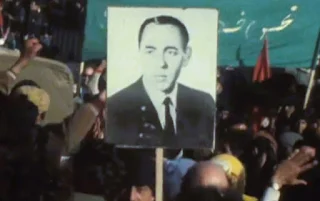The Western Sahara was a Spanish colony until the Green March, when Spain relinquished control. The Green March began on October 6, 1975, in the southern Morocco town of Tantan. It played a crucial role as one of the starting points for the Morocco Green March back in 1975.
The Morocco Green March Name
The choice of the name Green March was deliberate and symbolic. Green holds special significance in Islam, and Morocco, a predominantly Muslim country, wanted to emphasize its Islamic identity and historical ties to the Sahara region.
In Islamic tradition, green is often associated with paradise, fertility, and prosperity. It symbolizes hope, renewal, and a spiritual connection to the land. By naming it the Green March, Morocco sought to underscore its claim to the Western Sahara as a historical and spiritual extension of Moroccan territory.
Prior to the Green March
Before the Green March, the Western Sahara was governed by Spain. However, Morocco and Mauritania asserted their right to the region based on historical and territorial grounds. In November 1975, during political instability in Spain, as General Franco was dying and the government was facing a leadership crisis, Morocco launched the Green March. This event involved 350,000 unarmed Moroccans carrying the Koran in one hand and the Moroccan flag in the other while balancing a photo of the King as they walked into the Sahara, boldly demonstrating their conviction that they were destined to take control of the land.
The Green March Impact Today
They encountered Spanish colonial authorities after the Green Marchers crossed into the Western Sahara. Spain was under pressure from the massive, peaceful demonstration, and negotiations began. The result of these negotiations was the signing of the Madrid Accords on November 14, 1975, involving Spain, Morocco, and Mauritania. These accords led to the transfer of control of the Western Sahara from Spain to Morocco and Mauritania. Madrid agreed to withdraw from the Western Sahara by February 28, 1976.
The Green March's success led to the Madrid Accords's signing on November 14, 1975, involving Spain, Morocco, and Mauritania. As a result of the Madrid Accords, the Western Sahara was divided between Morocco and Mauritania. Mauritania eventually withdrew its claims to the Western Sahara in 1979, leaving Morocco as the principal claimant.
The Polisario Front, a Sahrawi nationalist movement, opposed the Moroccan takeover and fought for the independence of the Western Sahara. The United Nations became involved in the conflict, and efforts to find a resolution continue today.
A ceasefire agreement was reached in 1991, but the Western Sahara's status issue remains unresolved. The Green March remains a symbol of Morocco's determination to assert its territorial claims over the Western Sahara, and the legacy of this event continues to shape the ongoing conflict and negotiations in the region.
The African Union remains engaged in discussions about the Western Sahara's status, with some member states recognizing the Sahrawi Arab Democratic Republic, while others support Morocco's claims. The Western Sahara is rich in phosphate deposits and fishing resources.
The Morocco Green March took place in 1975 and was a pivotal moment in the history of Morocco's territorial claims in the Western Sahara region.



























